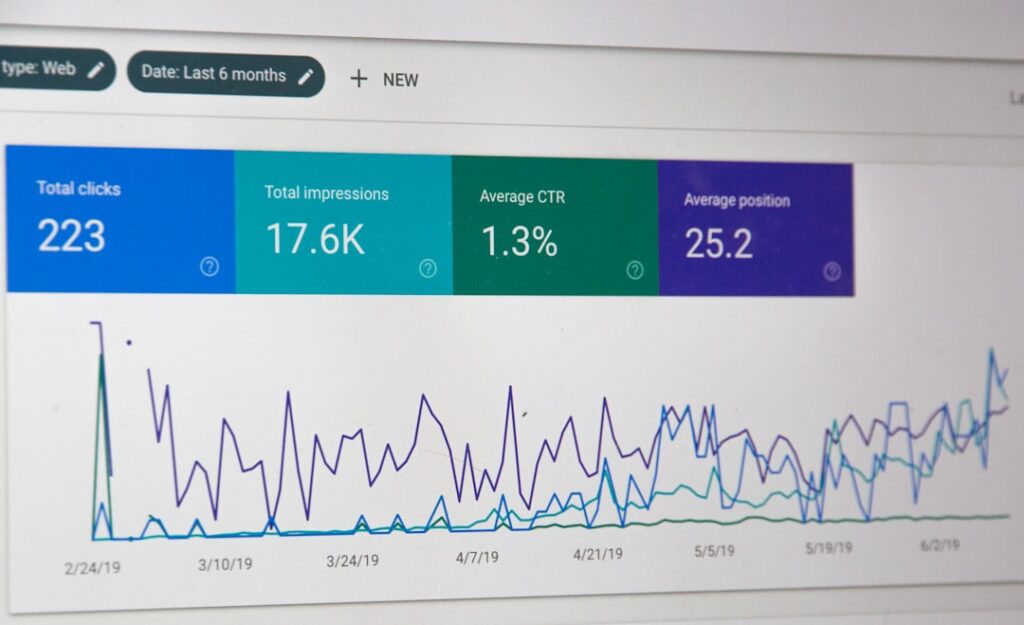Maximizing Customer Engagement with WiFi Analytics Software

WiFi analytics software is a technology that collects and analyzes data from WiFi networks to provide businesses with insights into customer behavior and preferences. This software captures information such as customer demographics, foot traffic patterns, dwell times, and device types. By processing this data, the software generates actionable insights that enable businesses to make informed decisions.
The primary function of WiFi analytics software is to help businesses understand their customers better and improve their overall experience. This technology allows companies to personalize their approach to customer engagement and tailor their services or products to meet specific needs. As a result, businesses can enhance customer satisfaction, optimize operational efficiency, and potentially increase revenue.
In the context of digital transformation, WiFi analytics software has become increasingly important for businesses seeking to gain a competitive advantage. By leveraging the data collected through WiFi networks, companies can develop more effective marketing strategies, optimize store layouts, and improve staff allocation based on customer traffic patterns. The insights provided by WiFi analytics software can be particularly valuable for retail stores, hospitality businesses, and other customer-facing industries.
These tools enable businesses to track customer loyalty, measure the effectiveness of marketing campaigns, and identify trends in customer behavior over time. As businesses continue to prioritize data-driven decision-making, WiFi analytics software is likely to play an increasingly significant role in shaping customer experience strategies and operational improvements across various industries.
Key Takeaways
- WiFi analytics software provides valuable insights into customer behavior and preferences within a physical space.
- The benefits of WiFi analytics include understanding foot traffic, dwell times, and customer demographics, which can inform business decisions.
- WiFi analytics software works by collecting and analyzing data from WiFi networks to provide actionable insights for businesses.
- Businesses can leverage WiFi analytics for business intelligence by using the data to make informed decisions and improve customer experiences.
- Implementing WiFi analytics in retail and hospitality can help businesses optimize layouts, improve marketing strategies, and enhance customer engagement.
Understanding the Benefits of WiFi Analytics
Personalized Marketing Efforts
Additionally, WiFi analytics software enables businesses to personalize their marketing efforts and engage with customers in a more targeted and meaningful way. Furthermore, WiFi analytics software provides businesses with the ability to measure the effectiveness of their marketing campaigns and promotions.
Optimizing Marketing Strategies
By tracking customer behavior and engagement, businesses can gain valuable insights into the impact of their marketing efforts and make adjustments as needed. This allows businesses to optimize their marketing strategies and maximize their return on investment.
Driving Business Success
Overall, WiFi analytics software empowers businesses to better understand their customers and make informed decisions that drive business success.
How WiFi Analytics Software Works

WiFi analytics software works by collecting data from WiFi networks and analyzing it to provide businesses with valuable insights into customer behavior and preferences. This technology uses advanced algorithms to process and interpret the data collected from WiFi networks, such as customer demographics, foot traffic patterns, dwell times, and device types. This data is then used to generate actionable insights that help businesses understand their customers’ behavior and preferences.
Additionally, WiFi analytics software provides businesses with the ability to track customer engagement and measure the effectiveness of their marketing efforts. By analyzing customer behavior and engagement, businesses can gain valuable insights into the impact of their marketing campaigns and promotions. This allows businesses to make data-driven decisions that optimize their marketing strategies and drive business success.
Leveraging WiFi Analytics for Business Intelligence
| Metrics | Data |
|---|---|
| Number of WiFi users | 500 |
| Peak usage time | 12:00 PM – 2:00 PM |
| Popular locations | 1st floor lobby, 2nd floor cafe |
| Visitor demographics | 50% male, 50% female |
| Customer dwell time | 30 minutes |
Business intelligence is a critical component of any successful business strategy, and WiFi analytics software plays a key role in providing businesses with valuable insights into customer behavior and preferences. By leveraging WiFi analytics for business intelligence, businesses can gain a deeper understanding of their customers and make informed decisions that drive business success. This technology enables businesses to personalize their marketing efforts, optimize their operations, and improve their overall customer experience.
Furthermore, WiFi analytics software provides businesses with the ability to measure the effectiveness of their marketing campaigns and promotions. By tracking customer behavior and engagement, businesses can gain valuable insights into the impact of their marketing efforts and make adjustments as needed. This allows businesses to optimize their marketing strategies and maximize their return on investment.
Overall, leveraging WiFi analytics for business intelligence empowers businesses to make data-driven decisions that improve customer satisfaction, increase operational efficiency, and drive revenue growth.
Implementing WiFi Analytics in Retail and Hospitality
Retail and hospitality businesses can greatly benefit from implementing WiFi analytics software. By leveraging this technology, these businesses can gain valuable insights into customer behavior and preferences, which can be used to personalize marketing efforts, optimize operations, and improve the overall customer experience. Additionally, WiFi analytics software provides retail and hospitality businesses with the ability to measure the effectiveness of their marketing campaigns and promotions, allowing them to make data-driven decisions that drive business success.
Furthermore, implementing WiFi analytics in retail and hospitality allows businesses to track customer engagement and measure the impact of their marketing efforts. By analyzing customer behavior and engagement, these businesses can gain valuable insights into the effectiveness of their marketing strategies and make adjustments as needed. This enables retail and hospitality businesses to optimize their marketing efforts and maximize their return on investment.
Overall, implementing WiFi analytics in retail and hospitality empowers businesses to better understand their customers and make informed decisions that improve customer satisfaction and drive revenue growth.
Maximizing Customer Engagement with WiFi Analytics

Personalized Marketing Efforts
Additionally, WiFi analytics software provides businesses with the ability to measure the effectiveness of their marketing campaigns and promotions, allowing them to make data-driven decisions that optimize their marketing strategies.
Tracking Customer Behavior
Furthermore, maximizing customer engagement with WiFi analytics allows businesses to track customer behavior and measure the impact of their marketing efforts. By analyzing customer engagement, businesses can gain valuable insights into the effectiveness of their marketing strategies and make adjustments as needed.
Optimizing Marketing Efforts
Overall, maximizing customer engagement with WiFi analytics empowers businesses to better understand their customers and make informed decisions that improve customer satisfaction and drive revenue growth.
Best Practices for Utilizing WiFi Analytics Software
When utilizing WiFi analytics software, there are several best practices that businesses should keep in mind to maximize its effectiveness. First, it’s important for businesses to clearly define their goals and objectives for using WiFi analytics software. Whether it’s improving customer satisfaction, increasing operational efficiency, or driving revenue growth, having clear goals will help businesses focus their efforts and make informed decisions.
Additionally, businesses should ensure that they are collecting relevant data from their WiFi networks. This includes customer demographics, foot traffic patterns, dwell times, device types, and more. By collecting comprehensive data, businesses can gain a deeper understanding of their customers’ behavior and preferences.
Furthermore, it’s important for businesses to regularly analyze the data collected from their WiFi networks to generate actionable insights. By regularly reviewing the data, businesses can identify trends, patterns, and opportunities that can be used to improve their overall business strategy. In conclusion, WiFi analytics software is a powerful tool that provides businesses with valuable insights into customer behavior and preferences.
By leveraging this technology, businesses can make data-driven decisions that improve customer satisfaction, increase operational efficiency, and drive revenue growth. Whether it’s retail, hospitality, or any other industry, implementing WiFi analytics software empowers businesses to better understand their customers and make informed decisions that drive business success.
If you’re interested in learning more about how WiFi Analytics Software can enhance user experience and security, you should check out this article on Unlocking the Benefits of Network Captive Portal: Enhancing User Experience and Security. This article delves into the ways in which captive portal technology can revolutionize WiFi management and improve the overall user experience.

